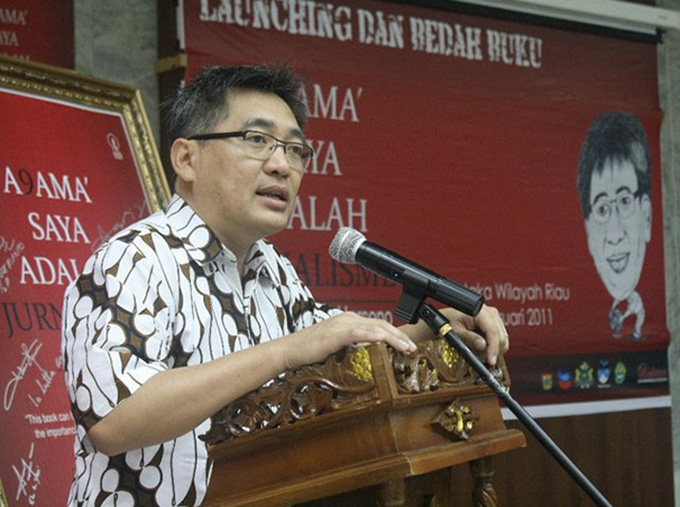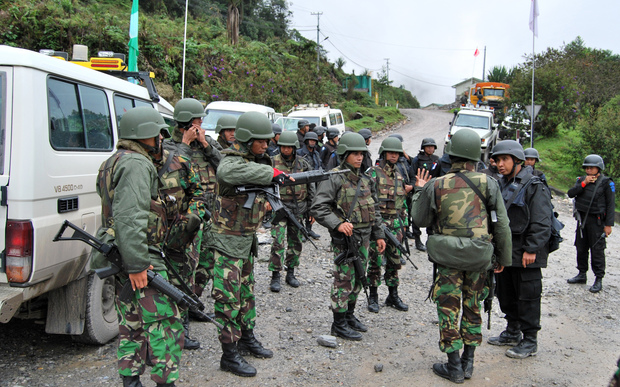
Human Rights Watch is urging the Indonesian government to rethink its classification of rebels in West Papua as terrorists.
Indonesia has formally designated Papuan independence fighters as “terrorists”, in a move expected to expand the military’s role in civilian policing in Papua.
But the NGO has warned that the new designation under counter-terrorism law could worsen racism and human rights abuses in West Papua while expanding the role of Indonesia’s military in civilian policing in the Melanesian region.
The designation was approved last week as military operations intensified in Papua region after an Indonesian intelligence chief was killed in an ambush by West Papua National Liberation Army (TPNPB) guerilla fighters.
In announcing the official’s death at a news conference in Jakarta last week, Indonesian President Joko Widodo vowed a military crackdown in Papua and declared the Liberation Army a terrorist organisation.
Formerly, Indonesian authorities referred to the Liberation Army as an “armed criminal group” (KKB).
A researcher with Human Rights Watch’s Indonesia office, Andreas Harsono, said the killing shocked and angered the public, the latest in a series of violent episodes in Papua that escalated since the Liberation Army was accused of killing 17 civilian road construction workers in Nduga regency in late 2018.
Cycle of deadly violence
Harsono said the designation of the terrorist categorisation to Papuan rebels was clearly a response to the cycle of deadly violence in Papua region.
But he was concerned that the broad classification under counter-terrorism legislation gave security forces the power to detain suspects for longer periods without charge, as well as hundreds of days before even going to trial, increasing the risk for suspects to be abused and tortured.
It also opens the floodgates of who could be branded as a terrorist in a region where pro-independence aspirations run deep among the indigenous population.
“This provision could be used to authorise massive disproportionate surveillance that violates privacy rights in Papua,” Harsono warned.

He said that extending military deployment in a civillian policing context carried serious risks in Papua, in part because Indonesian soldiers typically were not trained in law enforcement.
According to him, the military justice system has a bad track record in investigating and prosecuting human rights abuses by Indonesian soldiers.
“The underlying problem in Papua is racism: racism against the dark skinned and curly haired people, and of course those that do most of the human rights abuses against ethnic Papuans, these dark-skinned, curly-haired people who are predominantly also Christian in Muslim-majority Indonesia are Indonesian soldiers and police officers,” he said.
Designation unhelpful
The designation was unhelpful in terms of efforts to resolve long-running problems in Papua, Harsono explained.
“The Indonesian government should recognise that violating human rights in the name of counter-terrorism merely benefits armed extremists over the long term.”
Harsono said that threat posed by the Liberation Army needed to be put in perspective.
“According to Indonesian military estimate, they only have (around) 200 weapons. It is tiny, it is insignificant.
“Of course they are criminal, they kill people. Of course the police should act against them.
“But branding them as a terrorist organisation, these people who live in the forest who try to defend their forest, their culture, and their own people, mostly using bows and arrows, this is going to be ridiculous.
“This is going to affect these indigenous people so much. This is something the Indonesian government should review as soon as possible and if they don’t, the future generations will regret what the current government is doing.”

This article is republished under a community partnership agreement with RNZ.











































